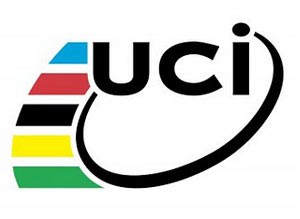Sanctions may be reduced or waived for those who cooperate
 Emphasising the need to examine the past in order to secure a better future for the sport, the Cycling Independent Reform Commission president Dick Marty said Tuesday that the body’s work had a vital role to play in safeguarding cycling from doping.
Emphasising the need to examine the past in order to secure a better future for the sport, the Cycling Independent Reform Commission president Dick Marty said Tuesday that the body’s work had a vital role to play in safeguarding cycling from doping.
The Swiss politician and former state prosecutor plus UCI president Brian Cookson spoke to reporters shortly after the CIRC and the UCI made a joint announcement about the investigation to be carried out and which will take approximately one year to complete.
Costing three million Swiss Francs, the inquiry will seek to make changes in order to greatly lessen the chances of a scandal such as the Lance Armstrong/US Postal Service affair ever happening again.
In addition to that, the investigation will also seek to unearth more details of that affair and to determine if individuals such as the past UCI presidents Pat McQuaid and Hein Verbruggen – or others within the sport – were in any way complicit in helping Armstrong or others to evade detection.
“The primary purpose of our investigation is not to punish doping offenders but to learn from the past so we can help ensure a better future for cycling,” said Marti, who however pointed out that sanctions may be handed down. “We will treat all witnesses fairly and so I urge anyone in the cycling community with information that can help our investigation to come forward.
“We have much work to do over the coming year and I hope, with the cooperation of the cycling family, the sport has a unique opportunity to learn lessons and regain trust.”
In order to encourage individuals to come forward, the CIRC’s terms of reference and regulations include concessions for those who cooperate.
The body will be able to propose reduced sanctions to any licence holder – including riders themselves, officials, agents, organisers and team staff – who admit to violations of anti-doping rules. Prize money will not have to be returned.
The sanction can be further reduced if what is termed ‘valuable information’ is given in relation to other anti-doping rule violations or other significant anti-doping matter.
For those licence holders who are already serving a period of ineligibility or facing disciplinary proceedings, the CIRC can decide to recommend a reduction in the sanction. This too will depend on their cooperation in the enquiry, and will have to be approved by WADA, the UCI and the body that is responsible for the sanction.
The terms of reference of the enquiry lay out the period of time to be examined as from 1998 to 2013; there appears to be no time limit set for investigation into the past actions of the UCI.
According to those terms, the main objective of the investigation is the production of what is termed ‘a
comprehensive report illustrating the causes of, and responsibility for, the doping practices that took place within the relevant period,’ as well as making recommendations for the sport.
The CIRC will be based in Lausanne with one permanent member based there, the Australian Peter Nicholson. He is a former military officer who specialises in criminal investigations, and has worked in the past on war crimes and terrorism cases.
The other two members are Marty and Ulrich Haas, an anti-doping investigator and CAS arbitrator. They will meet regularly with Nicholson and the trio will also meet people in a range of locations around the world. The investigation will be carried out confidentially and will be fully independent from the UCI.
Marty has appealed for anyone with information to come forward and to volunteer it. Those who do not and who are later implicated will face sanctions, and so there is an incentive to be proactive. However the statute of limitations will apply.
UCI President Brian Cookson said that the unveiling of the CIRC’s terms of reference was an important step in both understanding how past doping matters occured and also helping to restore cycling’s credibility.
“The Cycling Independent Reform Commission will not only help us learn from the past, but will also play an important role in shaping our future processes and practices,” he said.
“I committed to this process before I was elected in September 2013 and I’m pleased to see the CIRC fully operational only a few months later. It is essential that the Commission is left to get on with its investigation on a completely independent basis and I have ensured that all the structures are in place to allow this to happen.”
The full terms of reference can be read here. Full details of the associated press conference will follow.